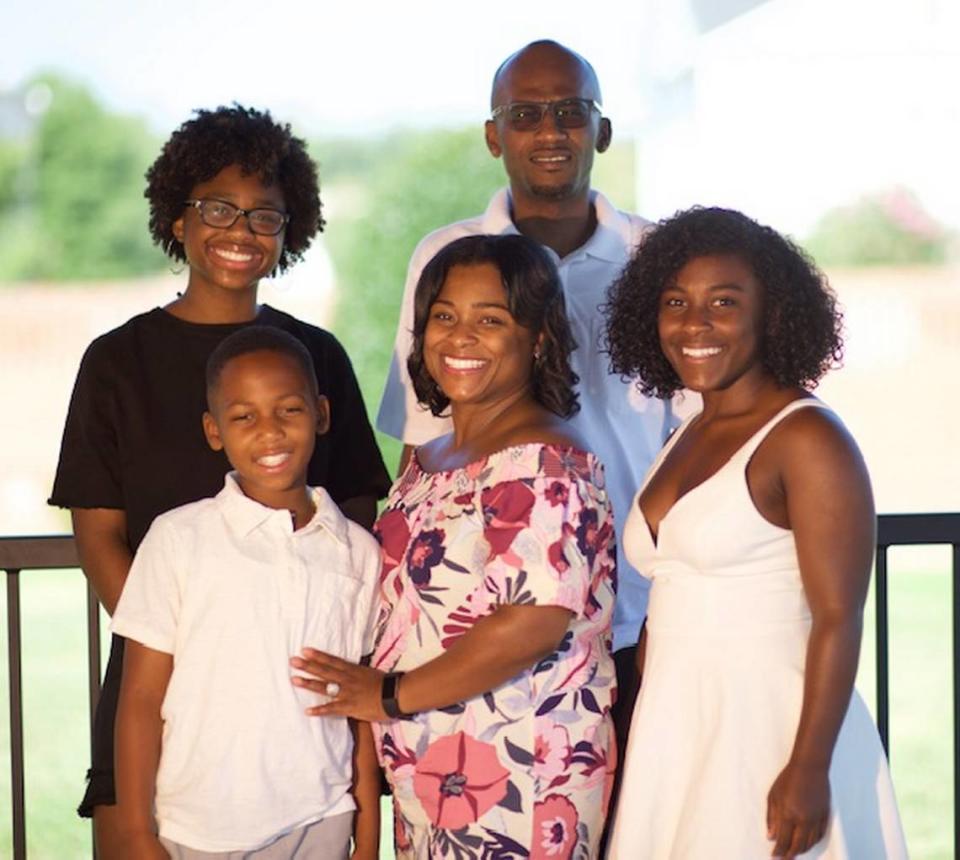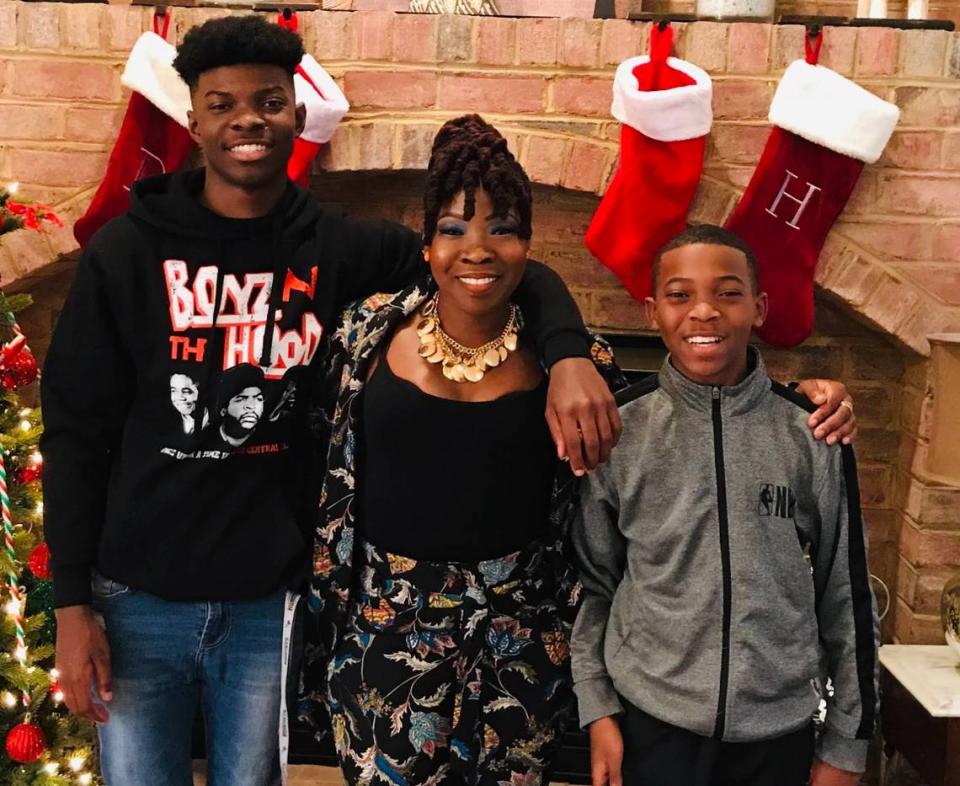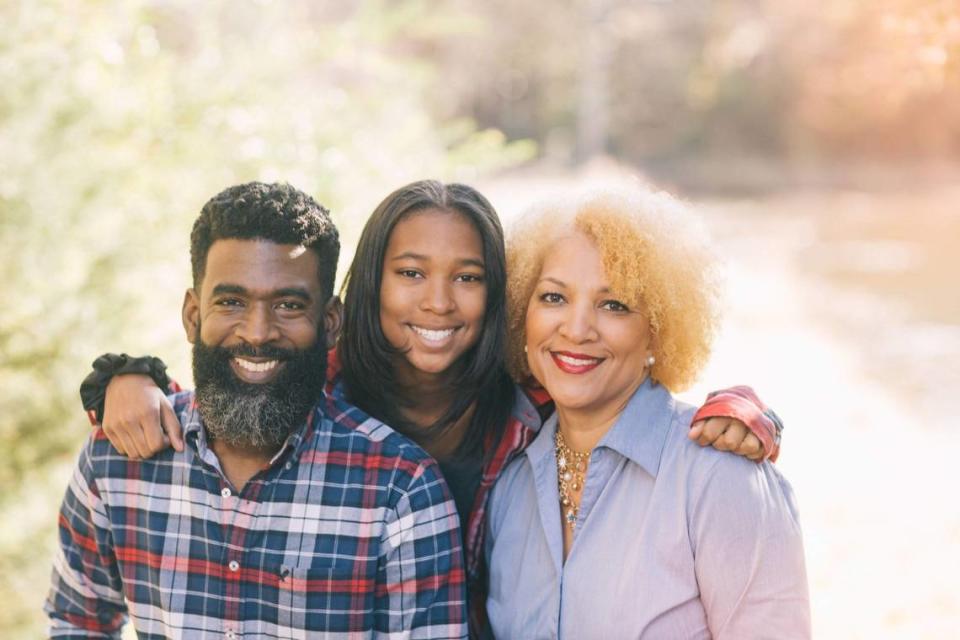‘I could potentially lose him.’ Black moms weigh heavy decision on COVID vaccine
Diamond Staton-Williams knew as a child she wanted to be a nurse.
It’s important, she said, for her as a Black woman to represent her community in a field where Black patients don’t often see themselves in doctor’s offices.
Now a healthcare industry veteran of 17 years and mother of three, she’s struggled with whether to vaccinate her family against COVID-19.
“It’s not any fault of our own. This country needs to rebuild its trust with the African-American community,” Staton-Williams said in a recent interview with the Observer. She is also an elected member of the Harrisburg Town Council.
As coronavirus vaccines arrive in North Carolina and across the country, many Black Carolinians are still on the fence about whether they’re going to vaccinate themselves and their families.
Mothers in particular have to weigh a heavy decision — whether to trust a system that has let them down time and time again.
The history of American medicine is plagued by accounts of experimentation and forced sterilization of people of color. Black women die at a higher rate during pregnancy and childbirth — as do their babies.
The COVID-19 pandemic has exploited existing disparities in healthcare.
Black people across the country and in North Carolina have been one of the communities struck the hardest by the virus — but they’re the most leery of a vaccine.
Rightfully so, says Staton-Williams.
“My friends who have told me they’re not getting the vaccine, that’s the main reason,” she said. “They don’t trust the science and don’t trust the government, and it’s because of the history we have with this country.”

‘It’s just too new’
When Monica Fuller Johnson goes to the doctor’s office, she brings a list.
She writes down all the questions she wants answered so she doesn’t forget anything, and she isn’t afraid to interrupt, asking doctors to repeat themselves and speak more clearly.
“I know how to advocate for myself,” the mom of two says. “I’m not going to be easily intimidated.”
Fuller Johnson, who works at the Charlotte-based Cardinal Innovations Healthcare, comes prepared for a reason: Black women are sometimes mistreated in the healthcare system — dismissed and misdiagnosed.
Structural racism often dictates how Black women are cared for by doctors who most often don’t look like them.
Black women are three to four times more likely to die from pregnancy-related complications in the United States than white women because of poor quality of care. Experts say it’s because they are undervalued and aren’t taken seriously when it comes to their own bodies.
Black patients’ pain isn’t taken as seriously — even as children. This past week, Dr. Susan Moore died after contracting COVID-19. A New York Times article chronicled how Moore’s pain was downplayed by her white doctors.
Historically, Black people aren’t likely participants of vaccine trials, and this time is no different. As COVID-19 vaccine trials continue at top speed and officials say recruiting people of color to participate is a priority, minority participation has only increased slightly.

Fuller Johnson, who hopes to get vaccinated when it’s available, said she doesn’t plan on getting her two sons vaccinated until more research is done. By taking the vaccine herself, she said, she would at least be less likely to be too sick to care for her family, in case her sons get infected.
“For me, the benefits outweigh the risks,” she said. “If there are disparities in health care and the health care that we [Black people] receive, the best way for me to prevent needing it is to prevent COVID-19.”
COVID-19 vaccines help people develop immunity to the virus. Though different vaccines use different methods, the main idea is the same — the body is left with lymphocytes that remember how to fight the virus in the future. And COVID-19 vaccines are required to complete the same steps other vaccines are required to go through to be approved — though they were finished at a much faster rate.
Still, the speed at which coronavirus vaccines have come out worries moms like LaShawn Kelly, who lives in Cabarrus County.
“I very well feel that even as a nurse I would like to hold off on getting my kids vaccinated,” the mom of three said. “It’s just too new for me. I would like more research done, specifically on its long-term effects that really haven’t been studied.”
Kelly, whose mother is Novant’s Dr. Ophelia Garmon-Brown, said it’s clear that her family trusts medicine and values the opinion of physicians. She’s had positive experiences in healthcare. And she has lost several family members and friends to the virus.
“I would definitely want to learn more about it and would like to see its more widespread use before choosing to make that decision for my children,” she said. “I might consider it in the future.”
History of mistreatment
Venitra White-Dean, a professor at Johnson C. Smith University, is getting the vaccine when it becomes available, but she’s letting her 15-year-old daughter come to her own decision.
“I think my daughter is leaning more towards waiting to see the next few months if any more people report side effects,” White-Dean said. “If I do it and explain to her in more detail why we as a community have to watch out for each other, I think she’ll kind of think about it a little more.”
White-Dean said she feels most of the friends she talks to about the vaccine are evenly split — many find it hard to trust a vaccine so quickly made by a system that has mistreated them.

Doctors throughout history have exploited Black people in the name of medicine — accounts about Henrietta Lacks, the Tuskegee experiment and the forced sterilization of Black people in North Carolina have echoed in the minds of Black Americans since the vaccine has arrived, including White-Dean’s.
“We know about the experimentation, but I also know vaccines are for the greater good,” she said. “I’d rather take my chance and be safe.”
The racial reckoning of the past year has only deepened many Black Americans’ distrust in their country and need to protect their children.
Garmon-Brown, a physician and North Carolina Vaccine Advisory Board member, said this reasoning is understandable from a Black mother.
“Black women take care of their families. With all the things we have to protect our Black children from, our need to be hyper vigilant is greater, just overall,” she said. “And I think for Black women, it’s like, ‘Let me take this and if something happens to me, I can deal with it.’ She’s going to be first and go out front because her children are so critically important to her.”
A Pew study from November found that only 42 percent of Black adults said they would get the vaccine, despite being most impacted by the virus.
Based on ethnicity data reported by states and compiled in The COVID Tracking Project by The Atlantic, disparities exist in infection and death rates for Black Americans. In almost every state, a disproportionate number of Black or Latinx people have been diagnosed with COVID-19.
North Carolina has reported race data for 82% of its cases and 95% of its COVID-19 deaths. While Black North Carolinians account for 21% of the population and 21% of cases, they account for 27% of the deaths.
“Nationwide, Black people are dying at 1.7 times the rate of white people,” according to the Boston University Center for Antiracist Research.
A disproportionate number of people of color work in essential jobs — which often cannot be performed remotely — while others have underlying health conditions and low access to health care and testing, making them even more vulnerable.
North Carolina has seen nearly half a million coronavirus cases since March, and the numbers continue to skyrocket. More than 6,000 people in the state have died. The Observer previously reported that the virus was disproportionately affecting Charlotte’s Black and Latinx communities.
Mecklenburg sets COVID death record as second surge intensifies
Black women especially are critical to the vaccines’ success — they are often the backbone of their families and communities. Even Anthony Fauci, head of the National Institute of Allergy and Infectious Diseases, has tried to bolster trust by emphasizing that the vaccine was developed in part by a Black woman.
But Garmon-Brown says there’s still a long way to go.
“Black women have been affected significantly with some things that have gone on, such as eugenics, particularly in North Carolina,” she said. “The trust is definitely not there.”
The state’s COVID plan also states that populations with a high risk of mortality from COVID-19, including those who are incarcerated, migrant farm workers and people in homeless shelters, will be prioritized, groups that include a high number of marginalized populations.
Garmon-Brown said that’s likely to raise suspicion in itself.
“It’s the fact there was so much publicity about this vaccination, and everything was done quicker than anything we’ve ever seen,” she said. “Then, when you offer it to Black people first, when we usually don’t get anything first, that’s going to raise eyebrows.”
After much consideration, Staton-Williams plans to get herself and her family vaccinated. One of her sons has asthma — it’s just too much of a risk, she said.
She said that in most of the group chats she’s in, the conversation centers around the vaccine. And she doesn’t judge other Black mothers who have chosen differently than her.
“It’s a heavy decision, a heavy burden,” she said. “But for me, if I don’t get my son vaccinated and he gets the virus, I could potentially lose him. And that’s a heavier weight.”
‘Historic moment.’ 4,000+ health workers already vaccinated in Charlotte area.

